‘In the end, what you’re looking for is satisfaction’ – Rigoberto Urán and the fear of the final phase
Colombia’s most popular rider on inspiring telenovelas, creating jobs and weighing up retirement
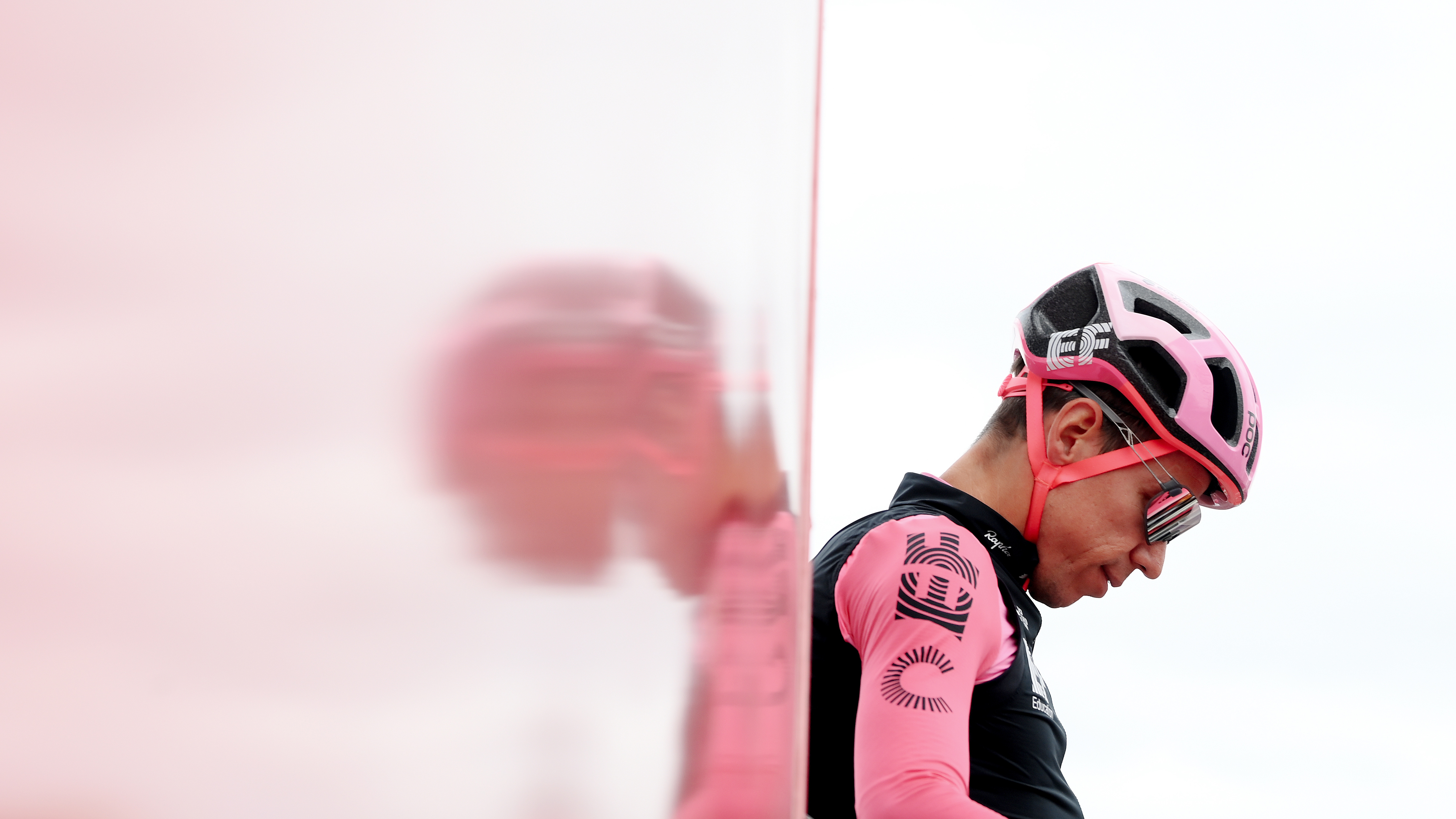

For a few weeks over the winter, Rigoberto Urán reckoned he might have had enough. His 2023 season had been a struggle. The Colombian was still the same, but cycling had just kept on changing. The rivals were younger. The races were faster. The risks were greater.
Eighteen years into his professional career, the trade-off between the rewards of racing and the grind of the routine started to seem a little less worthwhile. His children were growing up. His business interests were multiplying. Life beyond the peloton seemed more enticing than ever. Word eventually filtered out in November that 2024 would be his final season, with the Paris Olympics his last act.
But just when Urán thought he was out, they pulled him back in. EF Education-EasyPost floated the idea of a two-year contract extension. As he began training again in earnest for the new campaign, the finality of retirement began to dawn on him. Doubts started to creep in. He talked things over and again with his family, with his team. The more he thought and the more he talked, the less firm the decision became.
When Urán took the stage at the Tour Colombia’s pre-race press conference on Monday morning, he walked back the idea that his retirement date had already been set in stone. His career might end in 2024, but then again it might not. Later that afternoon, when Urán sits down with Cyclingnews a quiet corridor of the Hotel Estelar in Paipa, he lays out the current state of play.
“Up to now, we haven’t decided anything,” Urán explains. “Obviously, it’s something I’ve been speaking about with my family, with the team, and we’re thinking about it. I like riding my bike and training, but in recent years with this new generation, it’s more of an effort. Much more. You’re doing more training and everything, but when they open the gas, you can’t stay with them…”
Urán turned 37 last month and this, remarkably, is his 19th season in the pro peloton after he jumped directly from junior racing in Colombia to a contract with Tenax. In truth, it would be abnormal if Urán hadn’t considered retirement by this point, with so much road having passed beneath his wheels, but that doesn’t mean he’s ready to exit the stage just yet.
“I haven’t said for sure that I’ll finish up this year. It’s possible, but it’s not certain yet,” he says. “We’ll do the Tour Colombia calmly, and then this year I’ll do Paris-Nice, Catalunya, Tour de France, everything, a real nice programme. We’ll see as time goes by with the team, I’ve got a great relationship with Jonathan Vaughters, with everybody here. It’s a home for me.
The latest race content, interviews, features, reviews and expert buying guides, direct to your inbox!
“I’d gladly go on. I love this sport, I love riding my bike, but at the same time, I have a family and my children are growing up. That’s the other aspect to it. This isn’t a decision that I can just take on my own. The team and my family and lots of things are involved in it. It’s too early to say anything.”
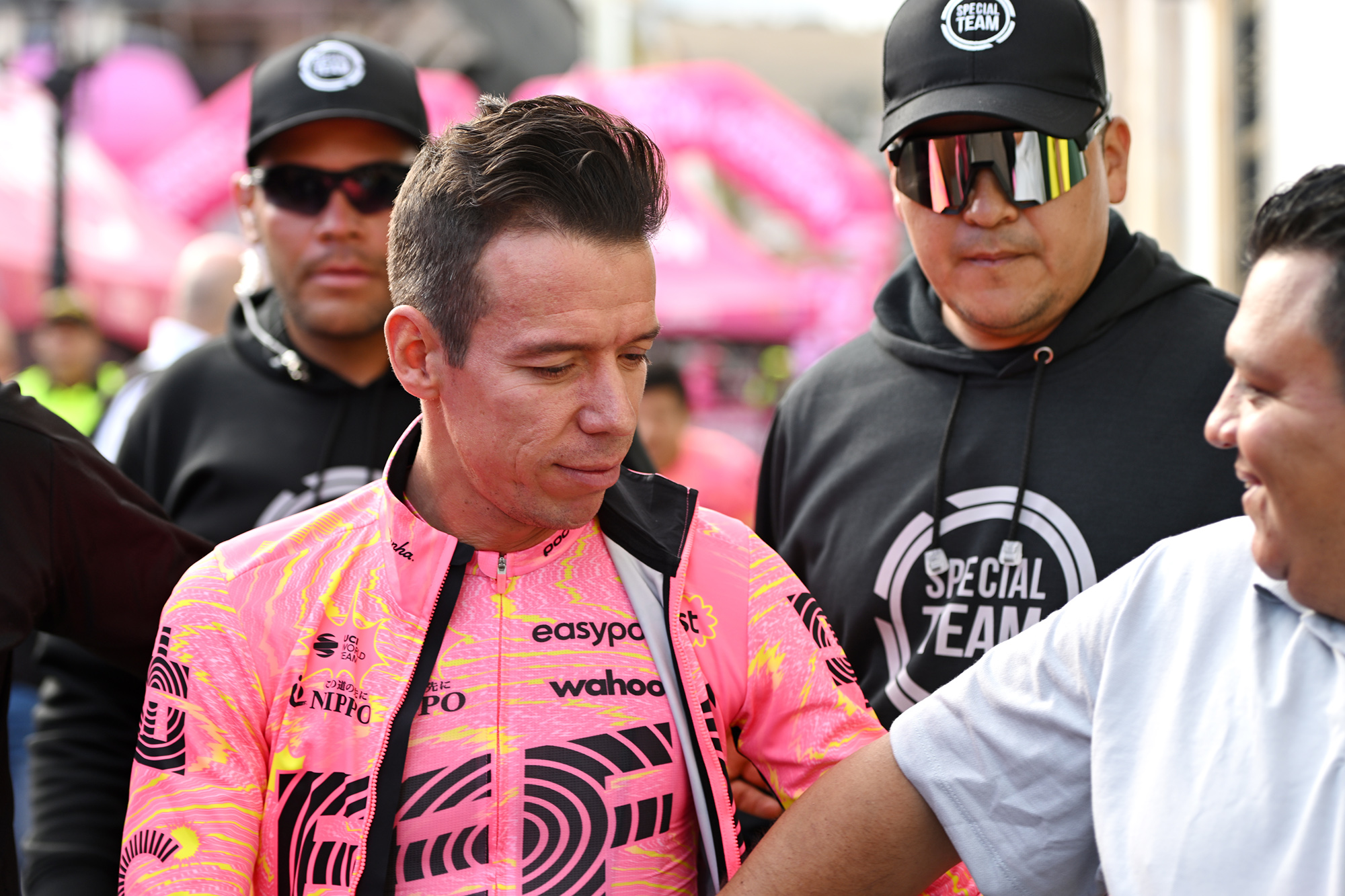
Rigoberto Urán at the Team Presentation for the Tour Colombia 2024
Urán had already toyed with retirement in 2022, but a razor-sharp stage victory at Monasterio de Tentudía on that year’s Vuelta a España persuaded him that the game was still worth the candle. His more recent ruminations have played out altogether more publicly, with his every statement on the matter taking up hefty clumps of real estate in the Colombian press. At this rate, Urán might ultimately end up making more farewells than Sinatra, but then that’s also because the crowd keeps on calling out for more.
Nowhere else venerates its bike riders quite like Colombia and, in this country, no rider commands adulation across as broad a spectrum of society as Urán. Other members of Colombia’s golden generation have won more or won bigger – Nairo Quintana landed the Giro and Vuelta, Egan Bernal claimed the Everest of the Tour – but it’s debatable if either man has chimed with as many people as Urán. Even at Sunday’s Tour Colombia presentation in Tunja, at the heart of Quintana’s Boyacá fiefdom, the multitudes erupted at the very sight of Urán.
His everyman popularity here is perhaps best compared with NFL player Rob Gronkowski in the United States or cricketer Andrew Flintoff in Great Britain. Plenty of athletes are admired for their greatness, but Urán is among that rare group who are beloved simply for their way of being. Cycling at this level is an extreme pursuit of solitude and sacrifice, yet Colombia’s most relatable sports star is a cyclist, an amiable Paisa from Urrao, three hours west of Medellín.
Why?
“Because I’m authentic. Because I’m Rigo, and Rigo is just a regular person,” Urán says. “Here in Colombia or in Europe when I talk with journalists or with fans, I’m just Rigo. It’s not a mask. Now, of course, there are times at the end of a race when you’re tired or whatever and when somebody comes up wanting to talk, I might say ‘Ah, fuck off, I’ll talk to you later.’
“But normally Rigo is always the same person. He’s original and authentic, he knows cycling is important, but it’s not the only thing in life. I think the people like this, they like that there’s a rider who’s been around for a long time and, even if he hasn’t won an awful lot, he has been entertaining.”
Urán is doing himself something of a disservice. He has won plenty, including stages at all three Grand Tours, and he’s finished on the podium at the Tour, Giro and Olympics. It’s true, however, that he has always entertained, both in his riding style and his penchant for peppering post-race interviews with phrases unique to that flavoursome version of Spanish spoken in Antioquia.
In recent months, Urán’s ability to entertain has entered an entirely new dimension. Between October and February, RCN Télévision broadcast a telenovela telling the story of Urán’s life. The 54-part series, titled Rigo, has run in a primetime slot, prompting Urán’s popularity to skyrocket even further.
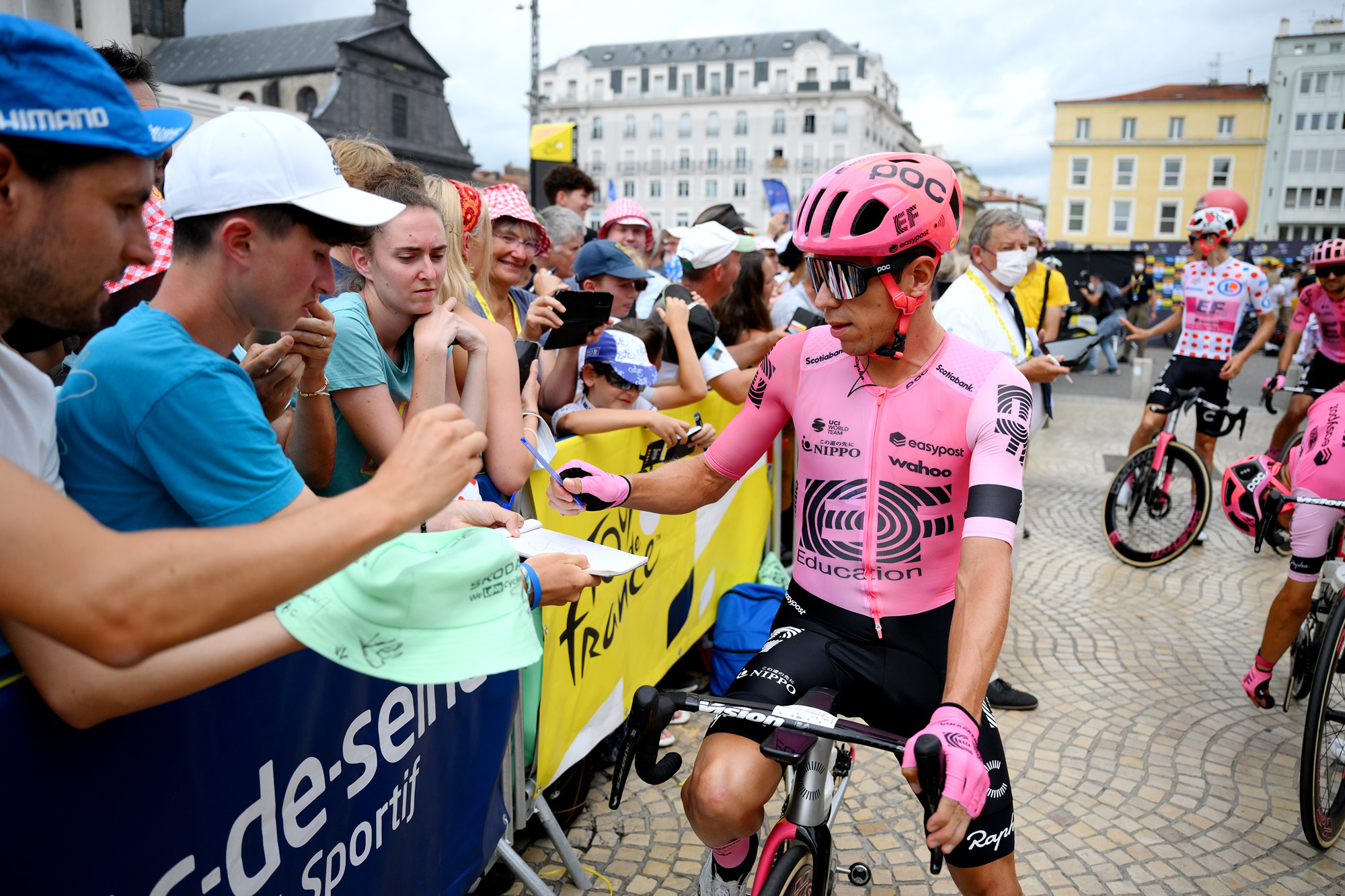
The 54-part television series Rigo has given Urán a new dimension of fan support
“Not even the Tour de France had this much of an impact,” Urán says, shaking his head. “Everywhere I go, I have children telling me they want to be like me, whether it’s in their studies or in cycling or in football. Everything.”
Moments later, as if on cue, two young girls, no more than five or six years of age, shyly approach Urán and ask for a photo. The problem is they don’t have a camera. Urán gently sends them off to get one: “Find someone with a phone, and then come straight back here to me.” They return minutes later with their three older brothers, and the family huddles around Urán for the picture.
“Here in Colombia, we’re used to having so many TV shows about drug trafficking, and they make those shows because people like watching it, so I can’t say anything about that,” Urán says. “But now there’s a product like Rigo, which is Colombian-made, with top Colombian actors, and it shows something different. It shows that you have to work and make a lot of sacrifices to get where you want to go. I’m proud that people are watching and identifying with it, saying, ‘This is my life, I’m like Urán.’”
And yet Urán’s has clearly been a life apart. He had to grow up unfeasibly fast as a young man. When his father was murdered by paramilitaries in 2001, the 14-year-old Urán took on the late Rigoberto Senior’s job of selling lottery tickets while continuing his schooling and his cycling. His journey from there to the Tour podium makes him one of the most extraordinary Colombian lives. The television series, meanwhile, meant that he relived the tragedy of his teenage years with an entire nation.
“I’ve told a lot of things about my life, but I’d never really shown what the first years of my life were like after my father died,” Urán says. “Sure, everybody knew my story, but they hadn’t seen it. This shows my life, from when I was 12 to 18. I was a child, but I was living the life of an adult. I lived through many terrible things. Many good things too, but these are all the things that made me more of a man, more intelligent and more enterprising.”
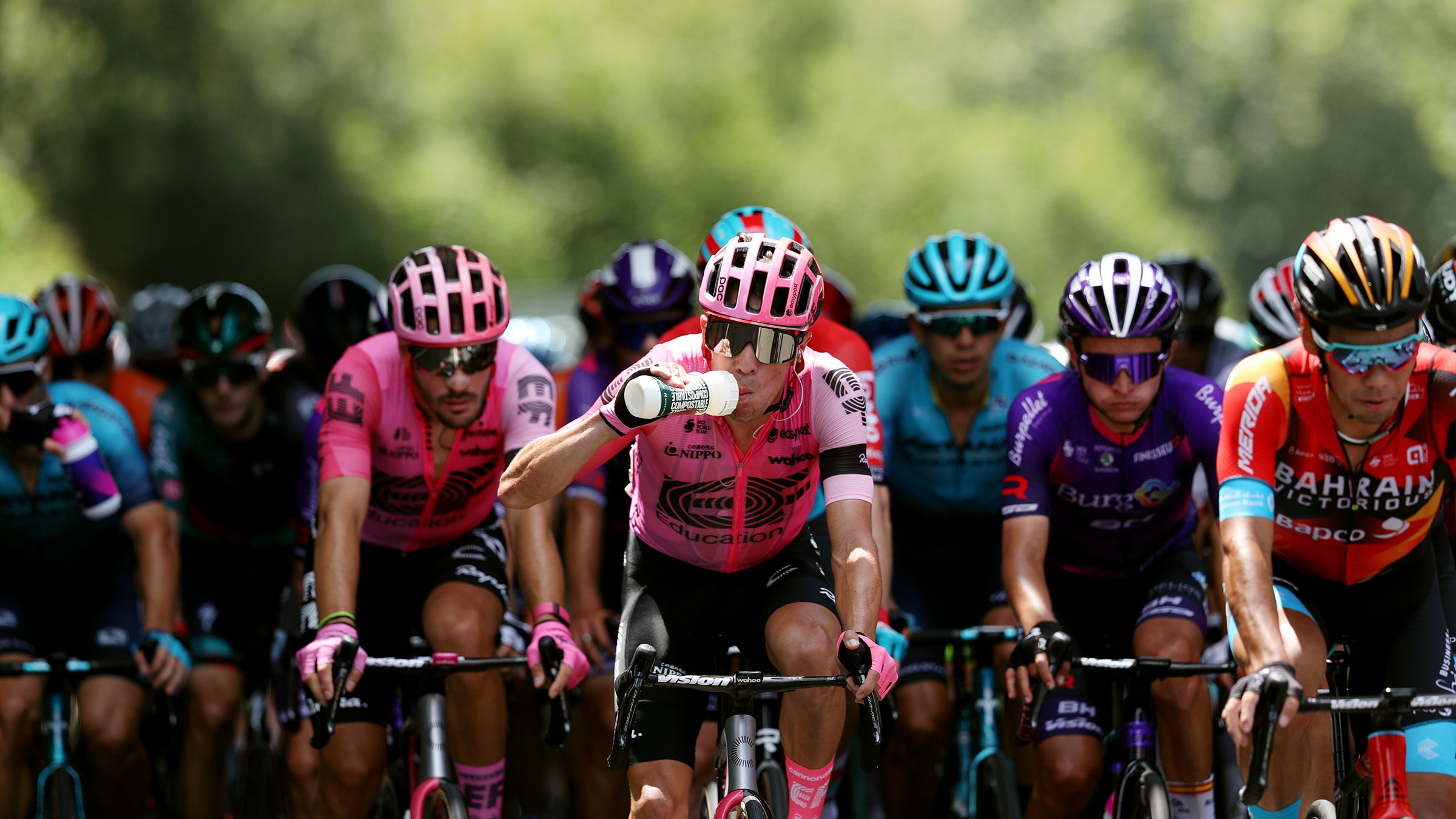
Urán’s entrepreneurial bent has long co-existed with his day job on two wheels. In 2014, the same year he lost the Giro to Quintana in such contentious circumstances on the Stelvio, he launched his clothing line, Go Rigo Go. The start-up expanded quickly and Urán’s business interests extended to a chain of restaurants and a sportive event, the Giro de Rigo, that has seen guest appearances from WorldTour colleagues like Wout van Aert and Tadej Pogačar.
“We now have 320 employees with Go Rigo Go. We’ve got 15 shops and three restaurants, and we’ve got the Giro de Rigo, an event that gets more than 5,000 cyclists on the road every year,” Urán says. “I can say I’ve worked well in cycling and in my private life.”
Urán was only entering his late twenties when he launched his business, but even then, he was already thinking about what life might look like beyond the peloton. Above all, after years of waltzing from race to airport to training camp, he knew he would need something to occupy his time once the music stopped.
“We started Go Rigo Go precisely because I wanted to have something that could give me satisfaction after I stopped. Because in the end, what you’re looking for is satisfaction,” Urán says.
“When you’re a cyclist, the satisfaction is getting on the podium or winning a race. But it’s also a big satisfaction when you open a shop that has 50 employees, when you’re managing to change people’s lives a little bit. That’s really beautiful.”
With those business interests waiting for him, Urán seems uniquely prepared for retirement, yet he confesses that the thought scares him. He may always have placed the circus of pro cycling in its proper perspective, but that doesn’t make it any easier to step out from beneath the big top for the last time.
“Why am I afraid? Well today, in a team like EF, a rider has all the mechanics and soigneurs and so on looking after him. But as soon as he finishes racing, all that goes away, you understand? Done. It’s not there anymore,” Urán explains.
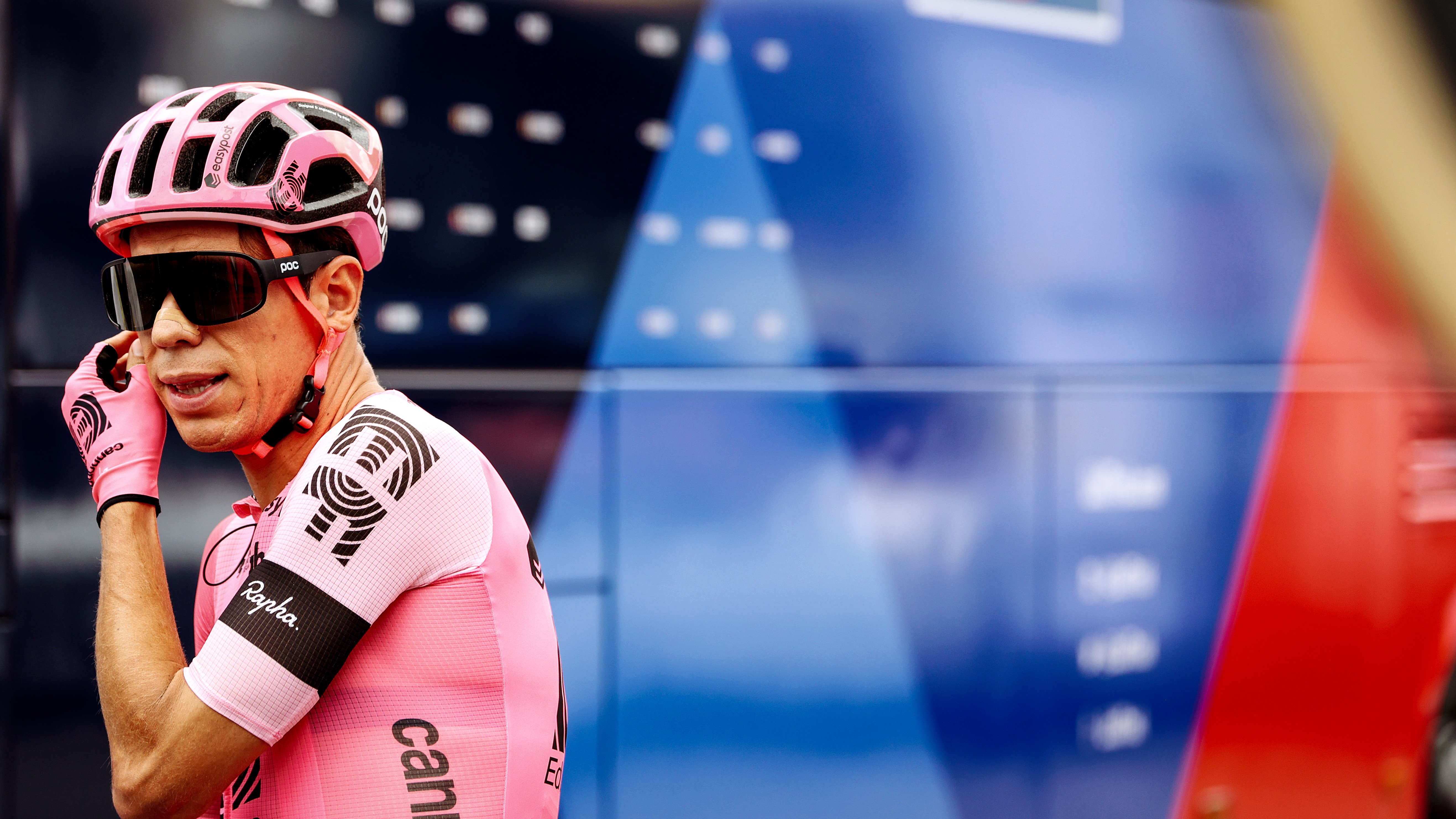
“And if you go back to the Tour in the future just to watch, you might be there as a tourist having a wine or a beer, but you know you’ll also find yourself looking over the barrier thinking, ‘I want to be there.’
“It’s not easy, and a lot of people have struggled with it, not just in cycling but in every sport. You often spend more nights in the year sharing a room with a teammate than with your wife. It’s a life where you have lots of people doing everything for you. And when you finish, you don’t have that anymore.”
Urán’s hesitancy to retire isn’t born entirely from a fear of missing out in the future. Although the demands and constraints are greater than ever, he is still taking pleasure in what he does right now. “I’m not sure if it’s the same for younger riders, but I still manage to enjoy myself because I’m in the final phase of my career,” he says.
Even if 2024 won’t necessarily bring the curtain down on Urán’s career, he knows he is deep into the final act. He has nothing left to prove at this point, but that doesn’t mean his time in the pro peloton will peter out into something of a victory lap. The businessman and telenovela subject remains a bike racer above all else.
“I want to win again, of course, whether it’s a stage here in the Tour Colombia or at Paris-Nice or the Tour in July,” Urán says. “I’d also like to work for the team when it’s needed. When you’re a professional rider, the objective is to win or at least to be useful for the team. I want to be really useful. That’s always the main aim.”
Thank you for your Cyclingnews subscription. We use our subscription fees to be able to keep producing all our usual great content as well as more premium pieces like this one. Find out more here.

Barry Ryan was Head of Features at Cyclingnews. He has covered professional cycling since 2010, reporting from the Tour de France, Giro d’Italia and events from Argentina to Japan. His writing has appeared in The Independent, Procycling and Cycling Plus. He is the author of The Ascent: Sean Kelly, Stephen Roche and the Rise of Irish Cycling’s Golden Generation, published by Gill Books.